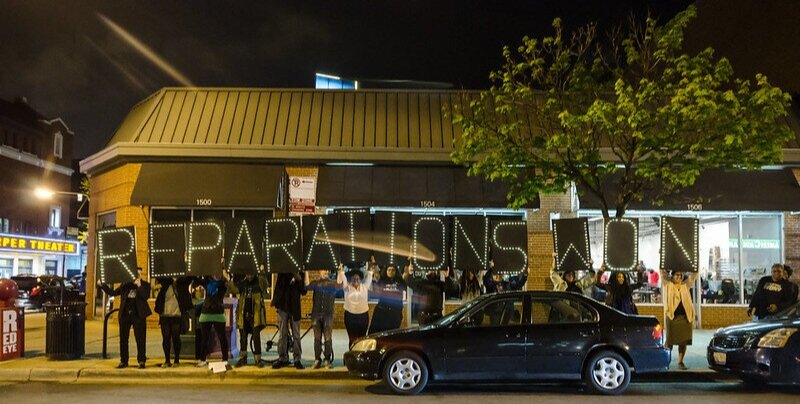
History of Chicago’s Reparations Movement
One of the most documented movements against police violence and torture occurred in Chicago over the span of 30 years.
Under the command of Chicago Police Department (CPD) Commander Jon Burge, over 120 people, predominantly African-American men, were tortured from 1972-1991. Jon Burge and officers under his command targeted communities of color, kidnapping and torturing individuals producing confessions to crimes not committed. Burge was a Vietnam War Veteran and used war torture interrogation tactics from Operation Phoenix on the survivors, such as racial epithets, electric shock, suffocation, and brutal beatings. After being forced to give false confessions, the survivors of torture spent years, some decades incarcerated. Public officials at the City, County, and Federal level refused to take action to stop the torture although concrete evidence documents the torture. Neither Commander Burge, nor any officer under his command, were ever criminally charged with torture.
For decades, survivors’ family members, lawyers, and community organizers fought to have Burge and his accompanying officers convicted for torture. Milestones in the fight for justice for the torture survivors included:
Four of ten Burge torture survivors on death row had sentences overturned
Community organizers testified at the United Nations Committee Against Torture and they recommended that the U.S. Government bring Burge accompanying perpetrators to justice
Burge was convicted of perjury and obstruction of justice in 2010 and served four years in federal prison
In May 2015, Chicago City Council passed a Reparations Ordinance for the Burge police torture survivors and their family members
As of 2016, twenty Burge torture survivors have been released from prison and exonerated on the basis of their innocence. Other victims served their sentences, but continue to suffer the stigma of wrongful convictions. At least twenty individuals remain incarcerated as a result of convictions, based in whole or in part upon their coerced confessions.
Survivors are routinely denied evidentiary hearings to raise newly discovered evidence of the pattern and practice of torture to corroborate their torture allegations from decades ago. Most of the survivors continue to suffer the psychological effects of the torture they endured, yet they have been without resources, including financial compensation, to access psychological treatment prior to the passage of the reparations legislation.
Photos by Sarah-ji
Reparations Now!
In late 2014, the #RahmRepNOW campaign kicked into high gear to pass the Burge torture survivors reparations ordinance that had been stalled in the Chicago City Council since October 2013. Spearheaded by the Chicago Torture Justice Memorials, Project NIA and We Charge Genocide, #RahmRepNOW included actions and protests intended to pressure members of the City Council and Mayor Rahm Emanuel to bring the reparations ordinance to a vote. On May 6, 2015, the country’s first reparations ordinance for survivors of police torture was passed unanimously by City Council. This short video by Project NIA depicts that fight.
Reparations Won
On May 6, 2015, after decades of struggle, the Chicago City Council unanimously passed the Reparations Ordinance proposed by the community based group Chicago Torture Justice Memorials (CTJM). Chicago became the first city in the U.S. to provide reparations for racially-motivated police violence. The Reparations Ordinance is one major step in repairing the wrongs committed by the City of Chicago and CPD against the torture survivors and their respective communities. Read the full text of the Ordinance here.
The work of fully realizing the healing and transformation outlined in Chicago’s historic roadmap for reparations continues today.


